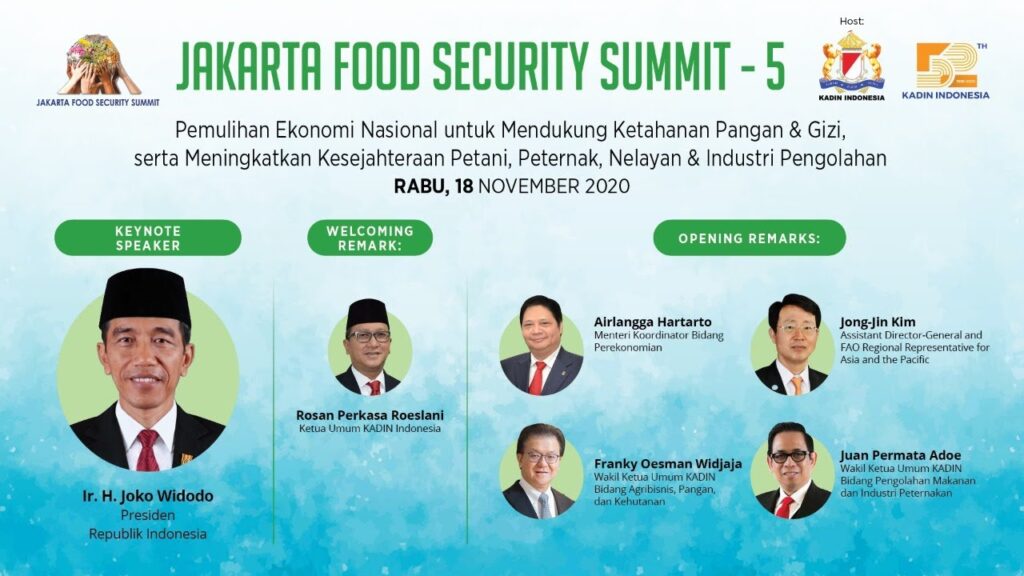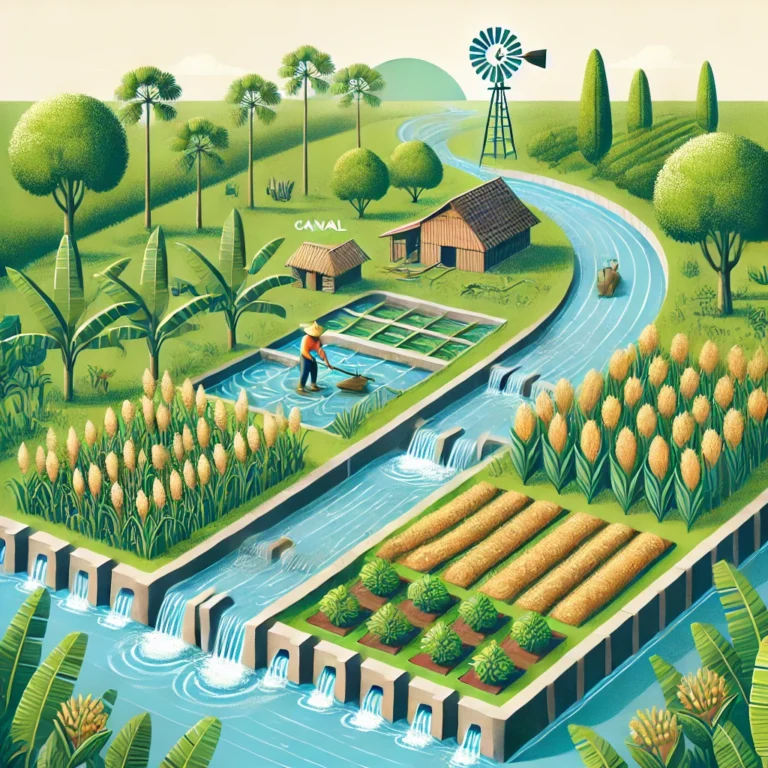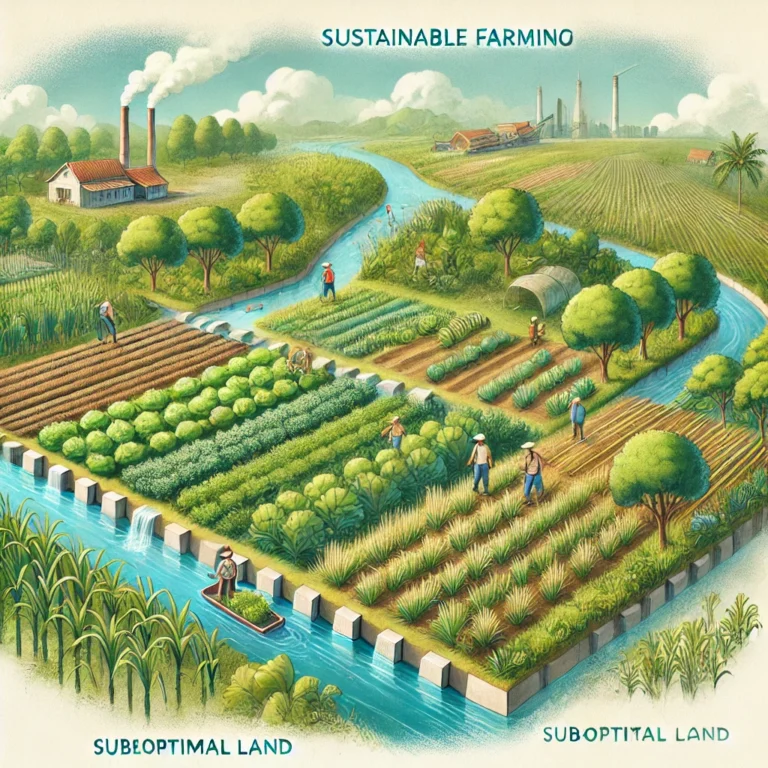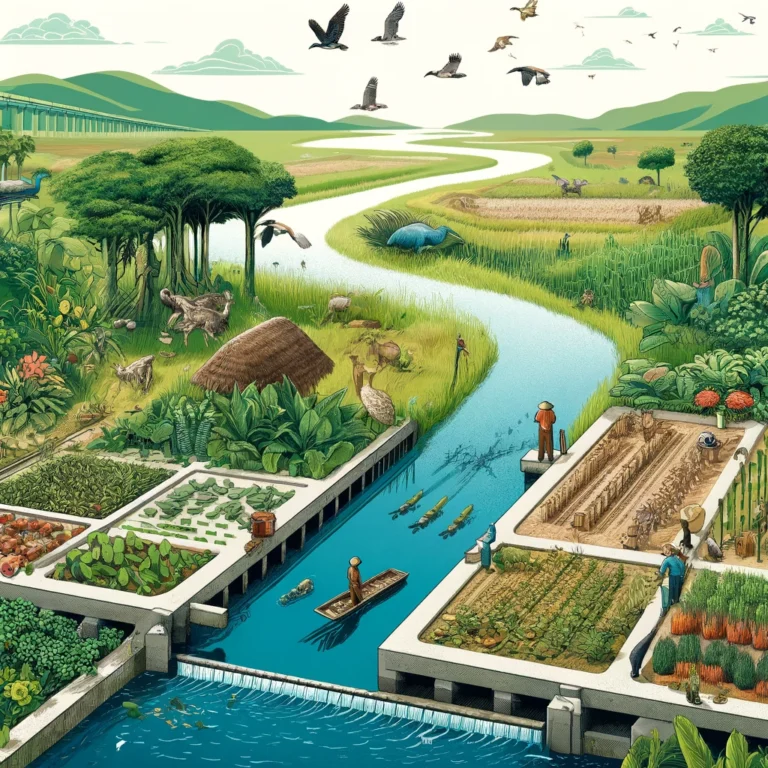The Jakarta Food Security Summit (JFSS) 2020 was held on 18-19 November 2020 with the theme National Economic Recovery to improve food security and nutrition, as well as to improve the welfare of farmers, ranchers, fishermen, and food processing actors. It was the fifth time that JFSS has been held since 2010. Unlike previous years, the Covid-19 pandemic forced the event to be held virtually.
Current situation with our food sector
President Joko Widodo (Jokowi) opened this series of events by encouraging and supporting the food sector and giving recognition to Indonesian food heroes. In his remarks, Jokowi stated that the growth of the food and agriculture sectors will continue to be developed due to the pandemic that occurred this year. We always rely heavily on the food sector to support people’s needs. Besides, increasing population also greatly affects the growth of these sectors.
In his remarks, Jokowi encouraged the food sector to develop in innovative ways to increase the efficiency of the production process, the level of food quality, affordable prices, next to improving the carrying capacity of environment and the welfare of farmers. Farmer corporations must become the basis for development by prioritizing added value at the on-farm and off-farm stages. To achieve farmers’ welfare, development should also be based on modern technology to make it more efficient and productive.
Jokowi also directly asked Kamar Dagang dan Industri (KADIN) to increase the target of farmer involvement in the food program to 2 million farmers by 2023. This program is in the form of farmer assistance starting from nurseries, post-harvest, to financial literacy – all aim to improve farmers’ welfare. He hoped that this inclusive collaborative business model can boost the food sector as a new economic power that opens up more jobs.
First steps taken and planning efforts
Chairman of KADIN, Rosan Roeslani, said that currently Kadin has assisted 1 million farmers and he is optimistic that the increase in farmer involvement can double by 2023. In addition, Kadin has also proposed a upstream-downstream partnership model called “Inclusive Closed Loop” that has been proven to increase farmer productivity and welfare. In this partnership scheme, farmers as the main character will be connected directly with various stakeholders.
Based on the Global Food Security Index (GFSI), Indonesia’s situation has improved from 2015 to 2019, which was previously ranked 75 to 62 currently out of 113 countries. Unfortunately, this increase is greatly influenced by increased imports, hence not reflecting the real situation within the country. Increased production of agricultural products must continue to be increased because this sector is very strategic for sustainable economic growth and long-term food security.
According to the Vice-Chairman of KADIN for Agribusiness, Food, and Forestry, Franky Oesman Widjaja, Indonesia has made a right decision by not stopping the operations of the agricultural, livestock, and industrial processing sectors when facing the pandemic situation. In a situation like this, of course, food security is needed. Besides dealing with the pandemic, food security is needed vitally to cope with the situation and to improve resilience toward population growth, climate change, and land conversion.
How to move forward
JFSS introduced us to a model called “Inclusive Closed Loop” that can increase food productivity and farmers’ welfare. This partnership model is carried out starting from training, access to superior seeds and appropriate fertilizers, good agricultural practices. It also includes access to funding, and guarantees of purchasing products by companies that provide consistent assistance, knowledge of financial literacy and utilizing technology.
According to Franky Oesman, the key to success in increasing food production is by creating a conducive ecosystem and business model, government support, farmer cooperatives and creating more food estates, building an integrated supply chain, multi-stakeholder cooperation with farmers.
On this occasion, Basuki Hadimuljono, the Minister of Public Works and Public Housing, reminded the importance of the water component in the success of the agricultural sector. Water might seem to only represent a small component in the agricultural cycle, but if there is no water then everything else is zero. Water availability and its management constitute up to 18% of the success of rice production. One way to ensure water factor in agriculture, water irrigation management is needed. The government has announced the construction of 16 dams and 45 dams are underway.
Meanwhile, Arif Satria, Chancellor of the Bogor Agricultural University, summarized three keywords for future agriculture, namely inclusive, precision, and sustainable. The future agriculture with increased productivity of agricultural products will contribute to the improvement of food security. From an economic perspective, this will also greatly affect the increase in economic rate by fulfilling the world food demand.






